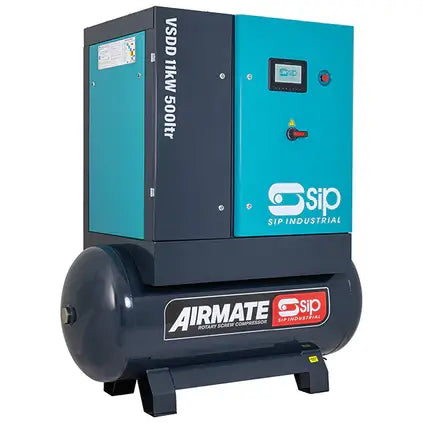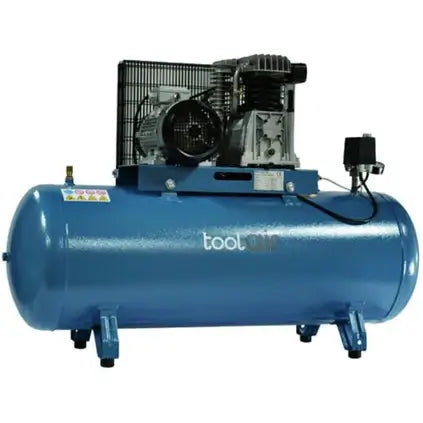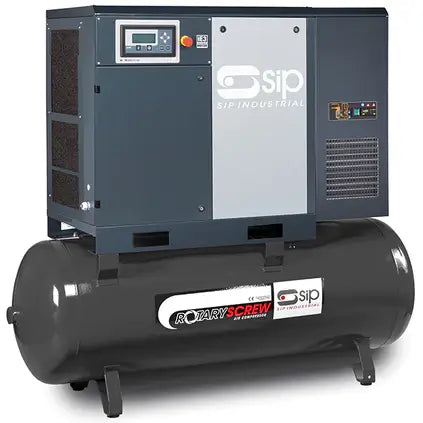
Are Air Compressors Noisy?
Welcome to our informative guide on air compressors and noise levels. If you've ever wondered whether air compressors can be noisy, you've come to the right place. In this section, we will explore the noise produced by air compressors and discuss the factors that contribute to their loudness.
Air compressors are widely used in various industries and applications, providing a convenient source of compressed air. However, they can sometimes generate noise that may be disruptive in certain work environments. It's essential to understand the noise levels associated with air compressors to maintain a peaceful and productive workplace.
Noisy air compressors can be a nuisance, causing discomfort, distraction, and potential hearing damage. The noise levels can vary based on factors such as the compressor's size, design, and operating mechanism. Understanding these factors can help in selecting the right compressor and implementing noise reduction strategies.
So, join us as we dive into the world of air compressors and noise. Discover how to reduce air compressor noise and explore silent and quiet compressor options. Let's create a quieter work environment together!

Key Takeaways:
- Air compressors can generate noise that may disrupt the work environment.
- Noise levels depend on factors such as the compressor's size, design, and operating mechanism.
- Reducing air compressor noise is crucial for maintaining a peaceful workplace.
- There are various techniques and strategies to minimize air compressor noise.
- Silent and quiet air compressors are specifically designed to minimize noise output.
How to Reduce Air Compressor Noise
Is the noise generated by your air compressor causing a disturbance in your work environment? If so, you're not alone. Air compressor noise levels can be a significant concern, but there are practical tips and methods you can implement to reduce and manage the noise effectively.
1. Select Quieter Models: When purchasing an air compressor, opt for models specifically designed to minimize noise output. Look for compressors with lower decibel ratings, as they tend to operate more quietly. Consider investing in oil-free compressors, which are often quieter than their oil-lubricated counterparts.
2. Soundproofing Measures: Implement soundproofing techniques to create a quieter work environment. This can include insulating the compressor room with noise-absorbing materials, such as acoustic panels or foam. Installing noise barriers like curtains or sound enclosures can also help contain the noise within a designated area.

3. Regular Maintenance: Proper maintenance is crucial to keep your air compressor running smoothly and quietly. Ensure all components are clean and well-lubricated, as excessive friction can contribute to increased noise levels. Regularly inspect and replace worn-out parts to prevent excessive vibrations and noise.
4. Remote Installation: Consider remote installation of air compressors, placing them away from areas where the noise may cause disturbances. Additionally, using flexible hoses or pipes to connect the compressor to your equipment can help minimize vibrations that may contribute to noise.
5. Noise Reduction Accessories: Explore noise reduction accessories that can be added to your existing air compressor setup. These can include mufflers or silencers that mitigate the noise produced during operation. Keep in mind that different compressors require specific accessories, so research compatibility before making a purchase.
Summary
Reducing air compressor noise is essential to create a quieter work environment and minimize noise pollution. By selecting quieter models, implementing soundproofing measures, performing regular maintenance, considering remote installation, and utilizing noise reduction accessories, you can effectively reduce the noise levels generated by your air compressor. Implementing these strategies will not only create a more peaceful workspace but also ensure the well-being and comfort of everyone in the vicinity.
| Noise Reduction Method | Effectiveness | Cost |
|---|---|---|
| Selecting quieter models | High | Medium |
| Implementing soundproofing measures | High | High |
| Regular maintenance | Medium | Low |
| Remote installation | Medium | Medium |
| Noise reduction accessories | High | Varies |

Silent and Quiet Air Compressors
When it comes to air compressors, noise can be a major concern in many work environments. That's where silent and quiet air compressors come into play. These specially designed compressors prioritize noise reduction, making them ideal for noise-sensitive areas such as workshops, garages, and offices.
What sets silent and quiet air compressors apart from traditional models is their innovative features and technologies. These compressors are equipped with advanced sound-dampening materials and insulation, ensuring that noise levels are significantly reduced during operation. Some models even incorporate noise-cancelling technology, which actively minimizes noise output.
One of the biggest advantages of using silent and quiet air compressors is the improved working environment they create. Their low noise levels allow for better concentration, communication, and overall productivity. Moreover, these compressors are more environmentally friendly, as they produce less noise pollution, contributing to a healthier and more enjoyable workplace atmosphere.
If you're looking to invest in an air compressor that won't disrupt your peace or disturb those around you, consider opting for a silent or quiet model. With their noise-reducing features and benefits, these compressors provide a more comfortable and efficient working environment, ensuring that you can get your job done without unnecessary noise distractions.

